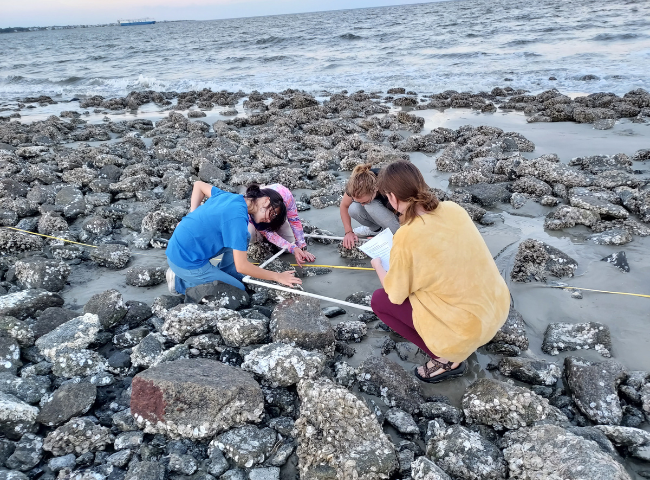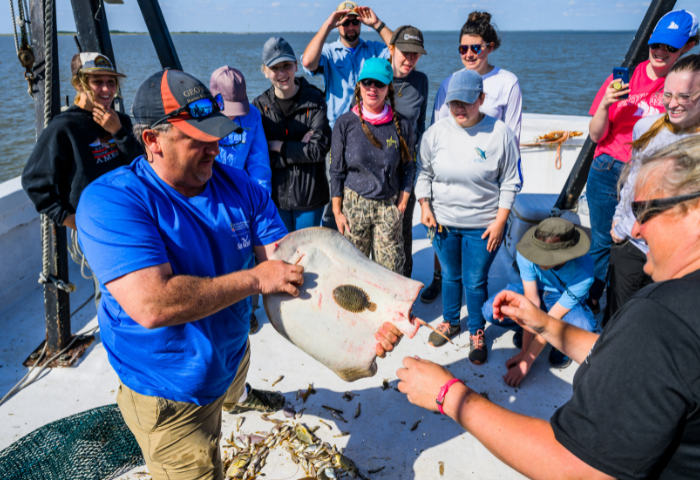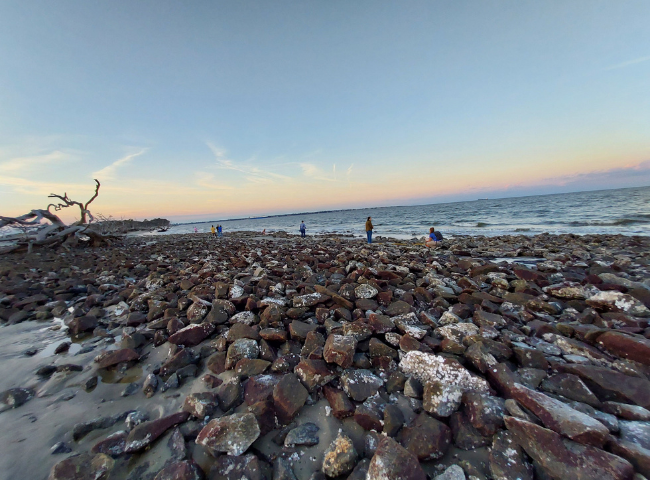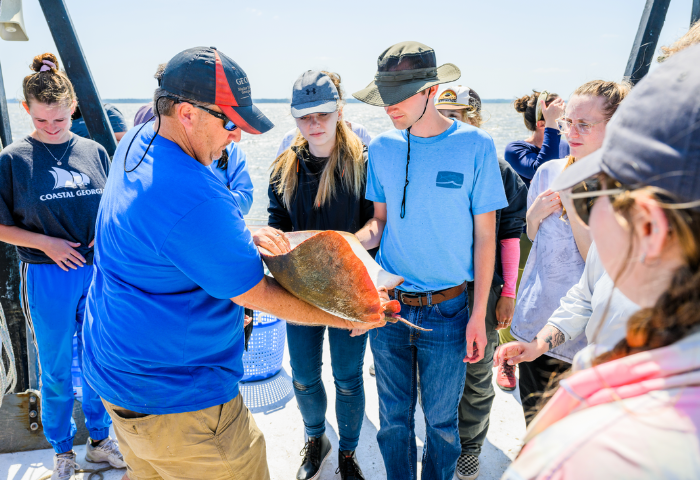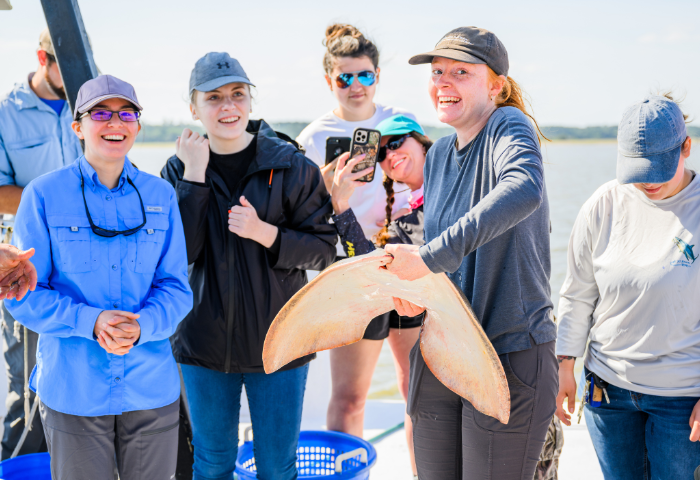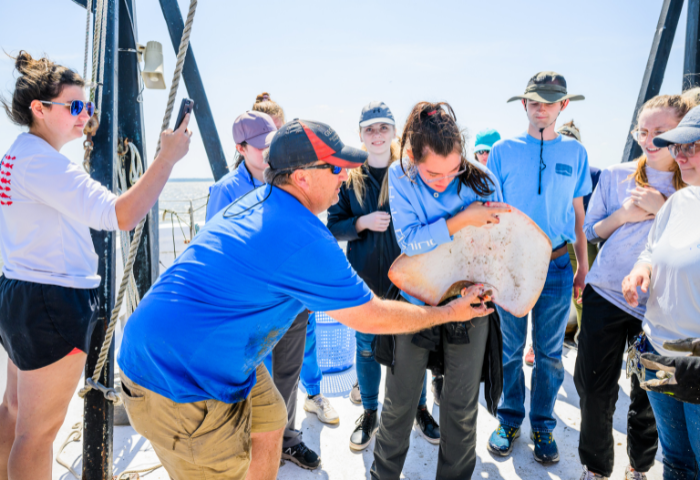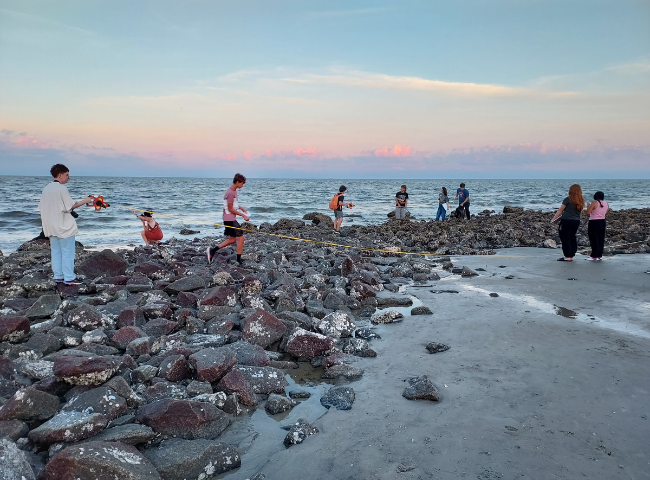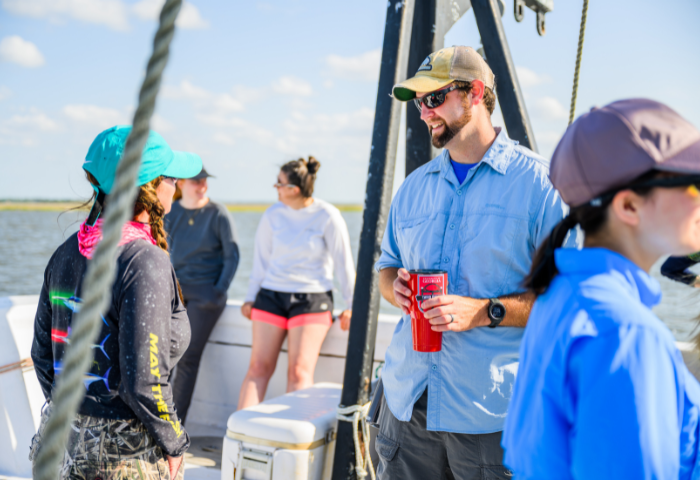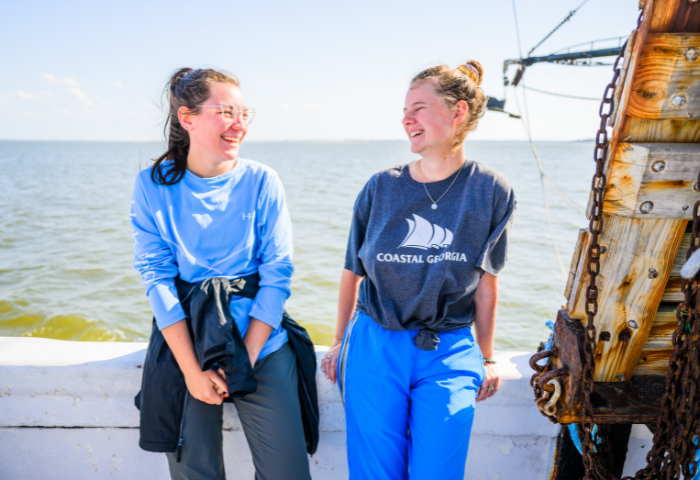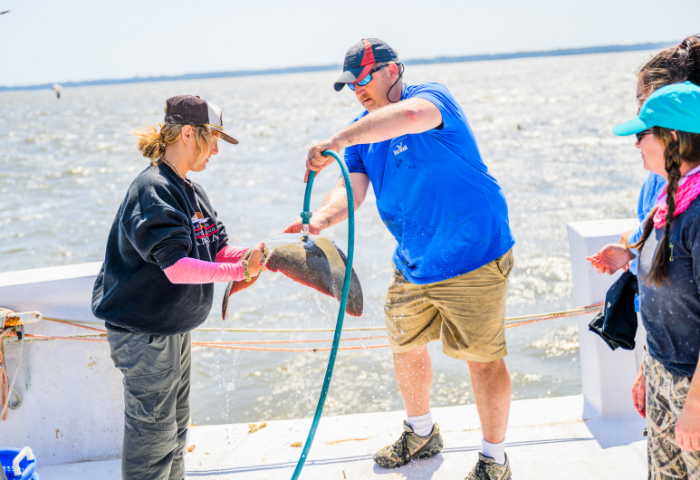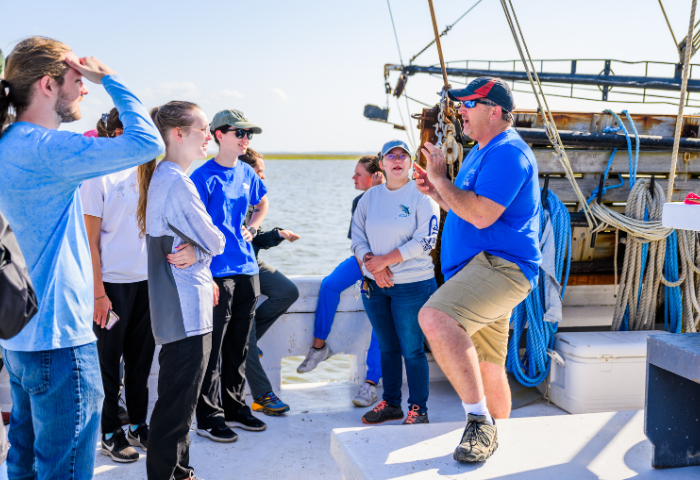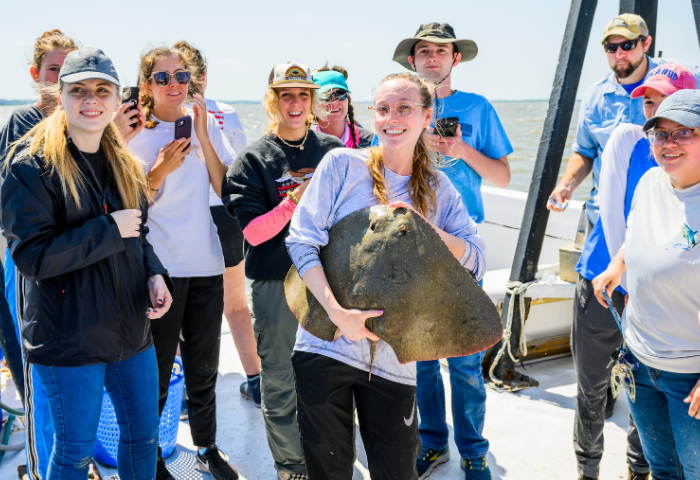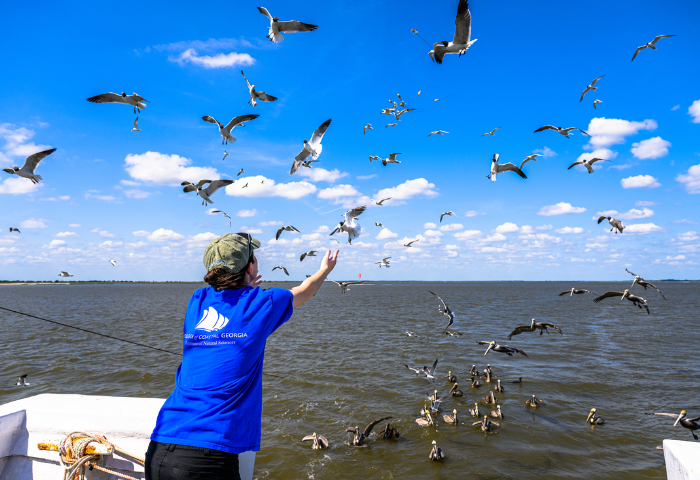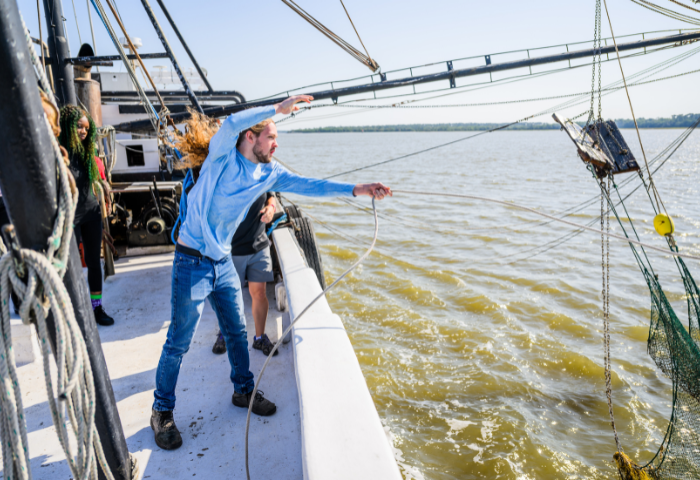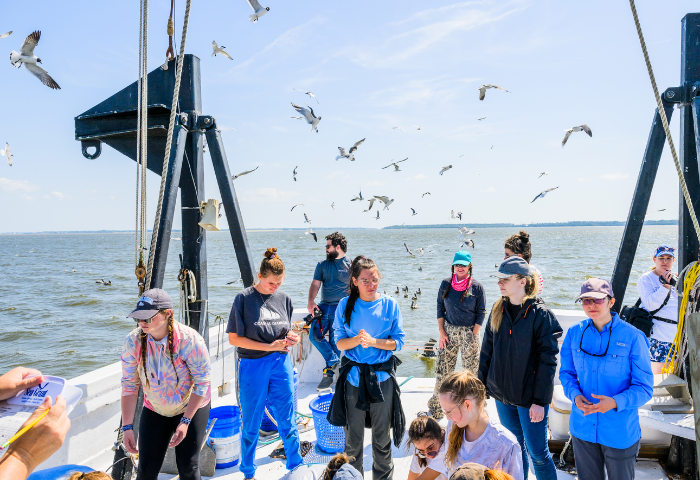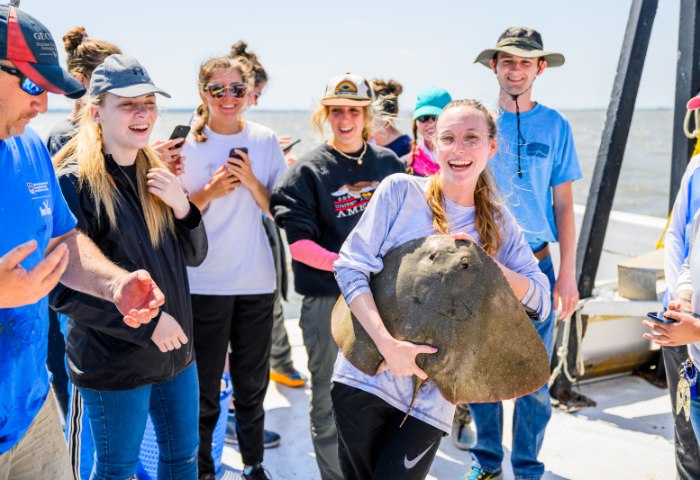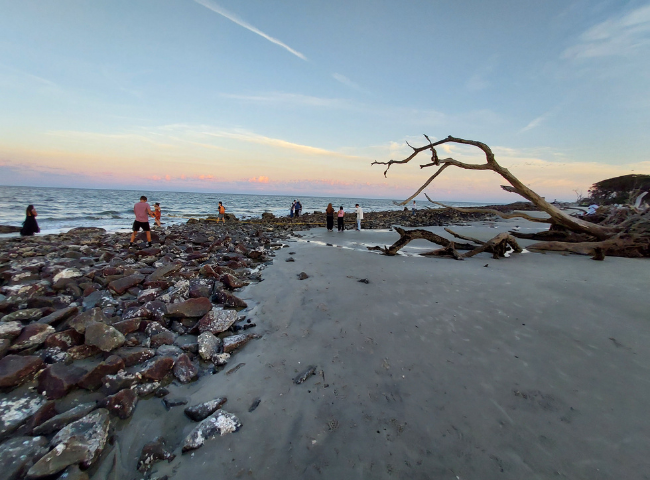- Home
- Academics
- School of Arts and Sciences
- Environmental Science
- Environmental Science Certificate
Environmental Science Certificate

The Environmental Sciences certificate at Coastal Georgia provides an interdisciplinary framework for understanding, analyzing, and managing our environment. Students can complete the certificate in one year.
Why study Environmental Science at Coastal Georgia?
Studying Environmental Science on the Georgia Coast is an incredible opportunity to learn strong fundamental science through an abundance of experiential opportunities. We also focus on professional development, applied coursework, and workforce preparation to help students land in the best possible opportunities after graduation.
What will I learn?
In this certificate, students learn the fundamental core Earth Science topics, as well as cutting edge tools necessary to address real world environmental problems. The required course coursework focuses on core skills such as environmental communication and geographic information systems, as well as foundational content knowledge in sustainability, oceanography, and climate change.
Fall | Spring |
ENVS 3100: | ENVS 3450: |
ENVS 3200: | ENVS 3600: |
ENVS 3510: Geographic Information Systems |
What can I do when I graduate?
Graduates of this certificate program are prepared for a broad range of jobs in the geosciences, ranging from field and laboratory technicians to education and outreach.
Contact Information
Dr. James Deemy
James Deemy is a hydrologist and environmental scientist. He has a broad background in biology, ecology, and geology. His research interests focus on assessing the hydrologic connectivity between isolated, ephemeral wetlands and watersheds. He has specifically assessed the water quality and quantity of agricultural storm-based flows that connect wetlands to nearby waters in southwest Georgia. James also has active research in water resources education.

